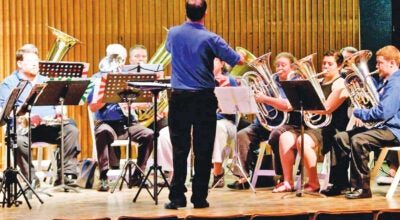Brush fires can be avoided
Published 10:16 am Wednesday, March 11, 2009
Like many rural counties in Ohio, residents of Lawrence County burn leaves during the fall months and tree branches and other types of natural debris come the first sign of warm weather in the spring.
Even farmers, who are planning for their 2009 crop, burn trees, weeds and other foliage from their fields in the attempt to clear the debris so they can plant.
However, less than two weeks into an unseasonably-warm March, three separate fires including two large brush fires have prompted annual reminders as to the “do’s-and-don’ts” of open burning.
According to the Ohio Environmental Protection Agency, Ohio law forbids that the following materials be burned anywhere in the state at any time:
Any waste or garbage that was created in the process of handling, preparing, consuming or cooking food.
Materials containing rubber, grease and asphalt or made from petroleum such as tires, cars, auto parts, plastics or plastic coated wire.
Dead animals.
Other restrictions:
Open burning is not allowed when air pollution warnings, alerts or emergencies are in effect.
Fires can not obscure visibility for roadways, railroad tracks or air fields.
No waste generated off the premises.
The Ohio EPA states that careless debris burning is a major cause of wild land and brush fires and encourages extreme caution with all potential sources of wildfire ignition.
They make the following suggestions:
Avoid burning on dry, windy days.
Burn late in the day after the wind has quieted and humidity begins to increase. Lawrence County allows open burning between the hours of 6 p.m. and 6 a.m.
Open burning is strictly prohibited within the city of Ironton.
Check to see if weather changes are expected.
Outdoor burning should be postponed if shifts in wind direction, higher winds or wind gusts are forecast.
Before doing any burning, establish wide control lines down to bare mineral soil at least five feet wide around any burn barrels and even wider around brush piles and other piled debris to be burned.
The larger the debris pile, the wider the control line needs to be.
Stay with all outdoor fires until they are completely out.
Keep water and hand tools ready in case your fire should attempt to spread.
While all types of brush fires can not be completely eliminated, lightning strikes for example, careful planning and common sense can prevent a large number of them which protects acres of valuable and scenic open space and property.




